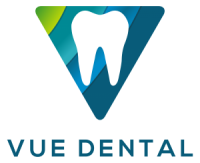Today, let’s address a common concern we often hear from patients, “I accidentally rinsed my mouth after tooth-extraction; what should I do?” First and foremost, don’t panic! While it’s not ideal, let’s sink our teeth into the topic to understand why it’s typically advised against and what to do if you’ve inadvertently swished that water around.
Understanding the Extraction Site
After tooth extraction, the space once occupied by the tooth begins a complex healing process. A blood clot forms in the socket, playing a vital role as nature’s bandage.
This clot protects the underlying bone and nerve tissue and is a foundational block for regenerating new tissue. Vigorous rinsing within the first 24 hours can dislodge this clot, leading to a painful condition called dry socket.
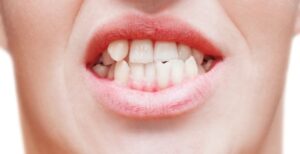
What is Dry Socket?
Dry socket, or alveolar osteitis, is when the blood clot gets dislodged or dissolves before the wound heals. This leaves the underlying structures, including nerve endings, exposed to air, food, and fluids, causing intense pain and possible infection.
When discussing dry sockets, understanding what happens in detail can help alleviate some of the anxieties. The blood clot that forms in the socket is rich in platelets and fibrin, aiding in wound stabilisation and attracting essential cells to help in healing. The loss of this blood clot exposes the bone and affects the cascade of healing events.
Only a small percentage of patients experience dry sockets, but taking all precautions is wise.
Spotting a Dry Socket Early
Early detection can save you a lot of trouble. A hallmark sign is a deep, throbbing pain a few days after extraction. Upon looking in the mirror, you might see a deep hole instead of a blood clot; sometimes, the bone may be visible. An unpleasant smell may accompany this.
Healing from a Dry Socket
If you’re diagnosed with dry socket, don’t lose heart. Your dentist will clean the site and may place a medicated dressing to promote healing. You might also be prescribed antibiotics and pain medication.
Immediate Actions
If you’ve rinsed your mouth accidentally soon after extraction, remain calm. Avoid spitting, and do not continue to rinse. Keep your mouth closed, and let the water dribble out into the sink. This minimises the pressure on the clot.
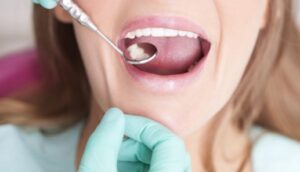
Tips for Optimal Healing
A few little tips one should always remember post-extraction to facilitate healing and prevent complications.
Gentle Salt Water Rinse
24 hours post-extraction, it’s safe to start rinsing, but gently. Mix 1/2 teaspoon of salt in 8 ounces of warm water. Take a small sip, and let it lazily swish around before letting it fall out of your mouth.
Proper Medication
Take pain medications as prescribed. Over-the-counter painkillers can be effective, but consult your dentist before taking any medication.
Cold Compress
Apply a cold pack to the face outside the extraction site for 15 minutes on, then 15 minutes off, to help reduce swelling.
Elevate Your Head
When sleeping for the first couple of nights, use pillows to keep your head elevated.
Soft Diet
Stick to a soft diet. Soup (not too hot), yogurt, pudding, and mashed potatoes are excellent choices.
No Straws
Avoid using straws for the first few days, as the suction can dislodge the blood clot.
No Smoking
Smoking can inhibit healing and also put pressure on the wound. It’s advised not to smoke for at least 72 hours post-extraction, longer if possible.
Gentle Brushing
Continue to brush your teeth gently, avoiding the extraction site for the first couple of days.
Seeking Help
If you experience severe pain, foul taste, fever, or swollen glands after tooth extraction, these could be signs of dry socket or infection. It’s imperative to contact your dentist immediately.
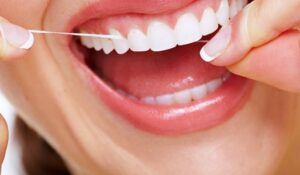
Stay Hydrated
Drinking water is essential but remember to take sips without swishing. Keeping yourself hydrated aids in the healing process.
Vitamin C and Omega-3 Fatty Acids
Include foods rich in Vitamin C and Omega-3 fatty acids in your diet, as they are known to promote wound healing.
Proper Rest
Give your body the rest it needs. This is not the time to engage in physical exertion.
Avoid Alcohol and Carbonated Beverages
Alcohol can interfere with clot formation, and the bubbles in carbonated drinks can dislodge the clot.
Oral Irrigation Syringe
After 24 hours, using an oral irrigation syringe to flush out any food debris gently can be helpful. But remember to be gentle!
Preventive Tips
While we’ve discussed what to do in case you’ve accidentally rinsed your mouth after an extraction, here are a few tips to avoid getting to that stage:
Pre-Extraction Consultation
Before your extraction, have a detailed conversation with your dentist about the dos and don’ts. Sometimes, being mentally prepared can prevent accidental slip-ups.
Plan Your Meals
Have your soft meals and cold compresses prepared beforehand. This minimizes the rush and reduces the chances of forgetting the instructions.
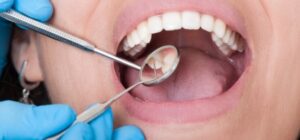
Key Takeaway
An accidental rinse post-tooth extraction isn’t the end of the world, but it’s important to tread carefully to facilitate the healing process. Be mindful and gentle, and keep an open line with your dentist for any concerns.
Your oral health is a cornerstone of your overall well-being. Remember, a stitch in time saves nine, and in the dental world, the right care can save you from a world of discomfort.
Looking for a Consult?
If you’re concerned about what repercussions rinsing your mouth after a tooth extraction might have. Then look no further than Vue Dental. We’ll take a good look and decide whether there’s anything to worry about.
Our state-of-the-art dental office is equipped with the latest equipment and a highly qualified team of dental practitioners who can address all your dental issues.
Get a consult with Dr Keshavi Patel today by calling us at 512-888-9340 or book an appointment online via our website. We offer all sorts of dental services, so feel free to contact us with any queries about your oral health!
